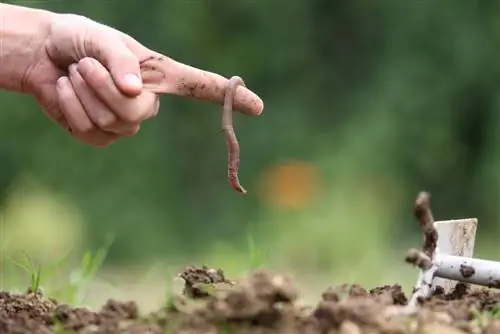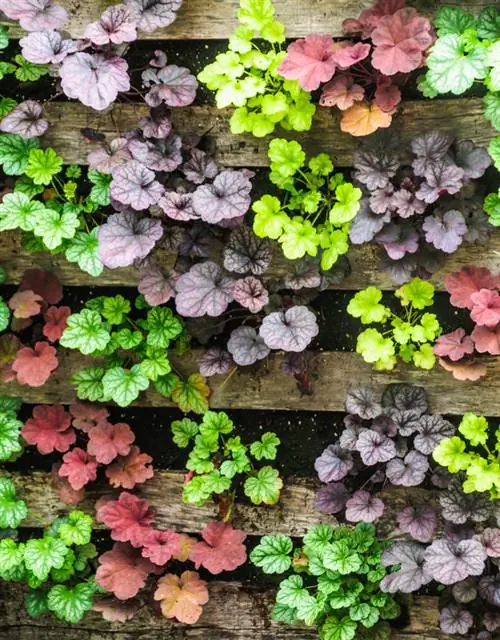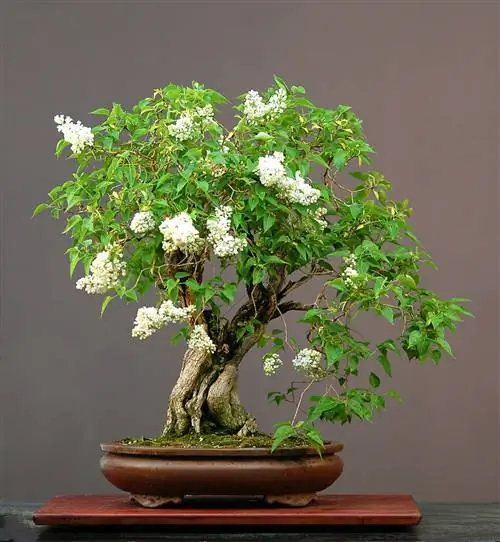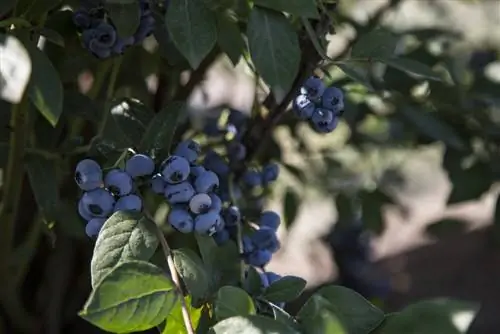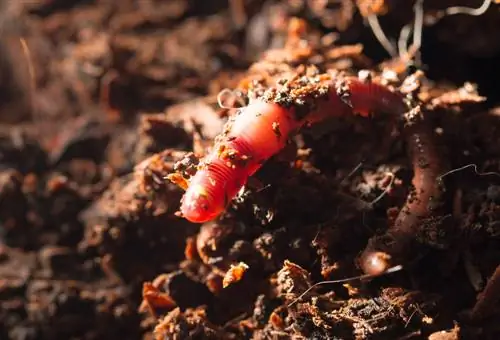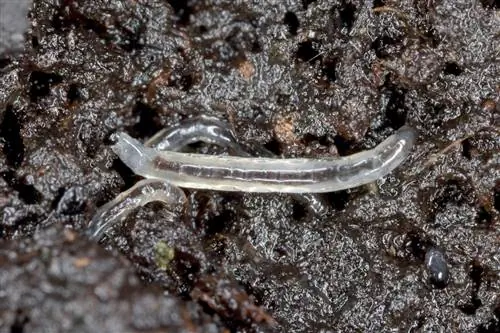- Author admin [email protected].
- Public 2023-12-25 17:45.
- Last modified 2025-01-23 11:22.
Everyone can be happy about worms in the garden soil. Because they are constantly refining the earth. The plants grow better, produce more beautiful flowers or plenty of he althy fruits. That's why we should make life easy for them in our gardens. These are the three most important types of worms.
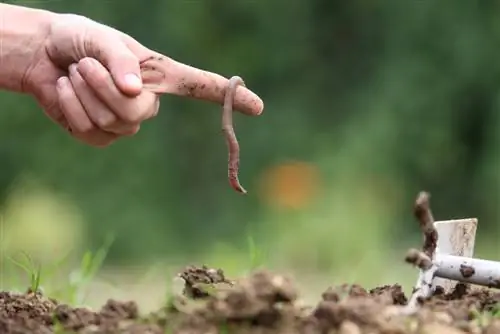
What role do worms play in the garden soil and how can you promote their activity?
Worms in garden soil, such as enchytraea, nematodes and earthworms, help improve soil by decomposing dead plant material, forming humus and controlling plant pests. To promote their activity, you should avoid chemical pesticides and use organic slow-release fertilizers.
Enchyträen
Enchytears reach a length of up to 50 mm and are white-yellow in color. Unlike earthworms, they cannot burrow through the soil. To do this, they use cavities in the soil as well as existing burrows from other worms.
The humus-rich topsoil is a typical habitat where they feed on bacteria, fungi and dead plant material. They have a high metabolic activity and therefore significantly drive the decomposition process in the soil. They are particularly important as humus builders in acidic soils. Their absence in such soils could be an indication that they are chemically contaminated.
Nematodes
Nematodes are known to some hobby gardeners as useful helpers in the fight against all kinds of pests in the garden. As such, they can be purchased specifically in stores. But they also occur naturally in the soil, very often in fact. They are also known as roundworms.
- up to 1000 nematodes live per gram of soil
- they are usually between 0.5 and 2 mm long
- are predominantly colorless
- move in a meandering manner
- can also be found in deeper layers
- feed on microorganisms such as bacteria, fungi and algae
- remove some pests from the garden soil
Earthworms
It is now well known that earthworms are useful for garden soil. More than 30 species are known in this country. Their length can be a modest 2 cm but also up to 30 cm. They dig holes in the garden soil and mix the soil. This is how humus reaches deeper layers from above. This is how you can improve your garden soil with earthworms without having to do anything yourself.
The activity of earthworms increases the water permeability of the soil. If it is riddled with holes, it can absorb rainwater much better than a worm-free soil.
Note:Did you know that earthworm droppings are a very special fertilizer? Its enrichment with nutrients surpasses the compost that is so popular in home gardens.
Avoid chemicals
Worms in the soil are sensitive to everything that doesn't come from nature. Frequent use of chemical pesticides can significantly reduce their number. Over time, this has a detrimental effect on the soil structure and composition. Therefore, avoid chemicals. Many pests can be combated in an ecologically friendly manner using home remedies.
When fertilizing garden soil, you should use “worm-friendly”, organic slow-release fertilizers.

